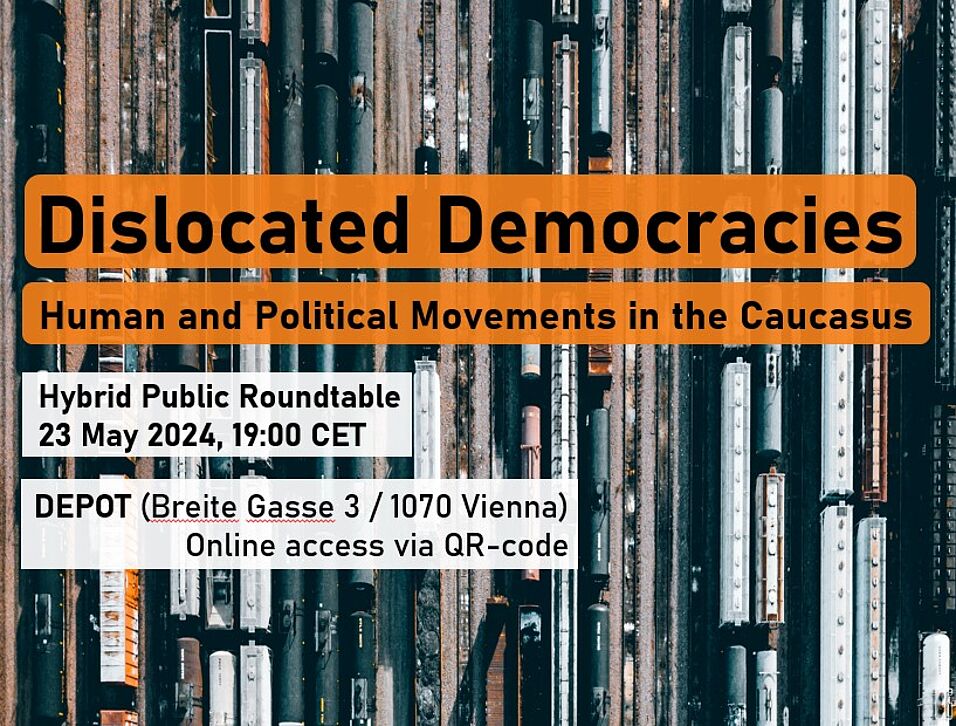Public Roundtable, 23 May 2024, 7 pm
Venue: Depot (Breite Gasse 3 / 1070 Vienna)
Online: Please register here.
The Caucasus is a region of constant movement. Historically situated at the crossroads of competing Empires, its borders have undergone numerous shifts. The diversity of its peoples has spurred countless transmissions across languages, ethnicities, and religions. And its location between the Caspian and Black Seas coupled with its land routes linking Asia with Europe has made it a strategic site of economic and military contestation. Today, the legacies of these dynamics tend to be framed in terms of protracted regional conflicts driven by wider geopolitical interests. But such narrow representations eclipse the richer, and also more difficult, social and cultural complexities that make the Caucasus a significant source of knowledge about the possibilities of democracy.
This roundtable explores how the movement of peoples within and out of the Caucasus has influenced indigenous conceptions – both past and present – of democratic governance. Bearing in mind current trends in human migration, it considers how such dislocations affect the social and political reception of democracy. The conversation will begin by exploring how Caucasian exiles, refugees, migrant laborers, or cosmopolitan intellectuals navigated, contested, or reinforced democratic ideas and processes over the past century. How do memories of democratic pasts – such as the short-lived Caucasian republics of 1918 – 1921 – color conceptions of nationhood and belonging both among the Caucasian states and their diasporas? How do gendered experiences of dislocation inform democratic ideals and mobilization towards social justice? And in what ways has environmental consciousness driven the democratic imagination?
with
- Adrian Brisku (Charles University, Prague)
- Ketevan Gurchiani (Ilia State University, Tblisi)
- Naira Sahakyan (American Univ. of Armenia, Yerevan)
- Turkay Gasimova (CEU Democracy Institute, Budapest)
chair
- Nino Aivazishvili-Gehne (Leibniz Institute for East and Southeast European Studies, Regensburg)

